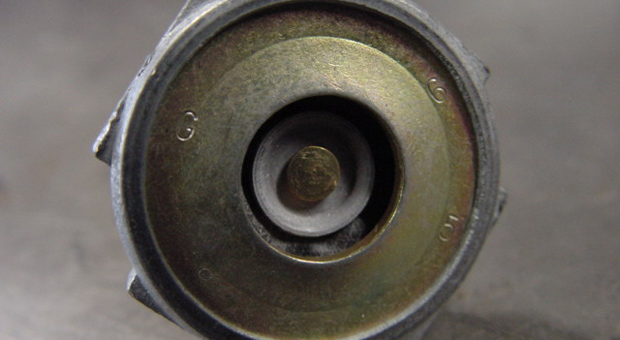If your power valve is too big, it can result in an overly rich air/fuel mixture and decreased performance. The power valve’s role is to regulate the fuel flow and maintain the correct air/fuel ratio, so if it is too big, it can cause engine problems.
The power valve is a crucial component in a carburetor that helps regulate the fuel flow, depending on engine load and rpm. If the power valve is too big, it can cause the engine to run too rich, resulting in fuel economy problems, decreased performance, and carbon buildup. Moreover, it can damage the engine if left unattended for long periods. In this article, we will discuss the consequences of having a power valve that is too big and how to diagnose and fix the issue to ensure your engine runs efficiently.

Credit: www.racingjunk.com
Consequences Of Having A Power Valve That Is Too Big
Having a power valve that is too big can cause a variety of issues for your engine. One of the main problems is that the engine may start to starve for fuel, resulting in reduced power and torque. Additionally, poor throttle response is likely to occur, making it difficult to control the speed of your vehicle.
Misfiring and backfiring may also become a problem, leading to potentially dangerous situations on the road. It’s important to ensure that your power valve is the right size for your engine so that you can avoid these negative consequences. Regular maintenance and monitoring can help you catch any issues early on and prevent significant damage to your engine.
HOLLEY POWER VALVE TUNING- Everything You Need To Tune Your Power Valve | Holley Carb Secrets |
Signs Of A Power Valve That Is Too Big
A power valve that is too big can cause various issues in your engine. It may run rich or lean, leading to poor fuel efficiency. Smoke from the exhaust and unusual sounds are also signs of trouble. Compared to a smaller valve, a large power valve can supply excess fuel to the engine and reduce its performance.
It’s not uncommon for tuners to experiment with different valve sizes to find the perfect balance between power and efficiency. However, this requires careful tuning and adjustment of the carburetor to ensure that the engine runs smoothly. If your engine is experiencing any of these symptoms, consider consulting a professional mechanic to diagnose and fix the problem.
How To Fix A Power Valve That Is Too Big
The power valve plays a critical role in the engine’s performance. If it is too big, your engine won’t perform its best. To fix this, you should replace it with a correctly sized one. You can also adjust it to achieve optimal performance, but this process can be tricky.
If you are not confident in doing this yourself, it may be best to seek help from a mechanic. A mechanic can diagnose the issue and help you fix it properly. Without the proper size, your engine may struggle to perform at its peak, leading to a lack of power, decreased fuel efficiency, and other issues.
Take the necessary steps to ensure your power valve is properly sized to keep your engine running smoothly.
Preventing Power Valve Issues
Power valve issues can prevent your engine from running smoothly. Regular maintenance can help avoid these problems. Choosing the right size power valve for your engine is essential. Proper tuning can improve your engine’s performance and prevent issues. Dealing with power valve issues early on can save you time and money.
Keeping these tips in mind will help you maintain a healthy engine and avoid power valve issues.
Frequently Asked Questions Of What Happens If My Power Valve Is Too Big
What Is A Power Valve And Why Is It Important?
A power valve is an essential component in many carburetors, controlling the fuel flow at higher rpms. It prevents bogging, improving throttle response and overall performance. Generally, a bigger valve moves fuel faster, helping at high rpms.
How Do I Know If My Power Valve Is Too Big?
If your carburetor has a power valve that is too big, it can cause drivability issues. You might experience hesitation, stalling, or rough idle. Additionally, your engine may suffer from a rich fuel mixture that leads to poor gas mileage.
Can I Replace My Power Valve On My Own?
Generally, replacing a power valve is a straightforward task that most car enthusiasts or mechanics can perform on their own. However, you should always consult the manufacturer’s instructions or seek professional help if you’re unsure or don’t have the necessary tools.
What Size Power Valve Should I Choose For My Carburetor?
Choosing the right power valve size depends on factors like engine displacement, camshaft profile, and gearing. A general rule of thumb is to select a power valve that is half the engine’s cubic inch rating if the camshaft is mild and three-quarters the engine size for a wilder camshaft.
Conclusion
After exploring the effects of having a power valve that is too big, it’s clear that it can have a dramatic impact on your engine’s performance. The power valve serves a critical role in regulating fuel delivery and ensuring that your engine is running at its optimal level.
When the valve is oversized, however, it can lead to sluggish acceleration, poor fuel economy, and even engine damage. That’s why it’s crucial to ensure that your power valve is properly sized for your engine’s needs. By taking the time to understand the function of this key component and consulting with a knowledgeable mechanic or tuner, you can ensure that your engine is running smoothly and performing at its best.
So, if you’re experiencing any of the symptoms we’ve discussed, don’t hesitate to investigate your power valve’s size and make any necessary adjustments. Keep your engine happy and healthy with the right power valve size.
